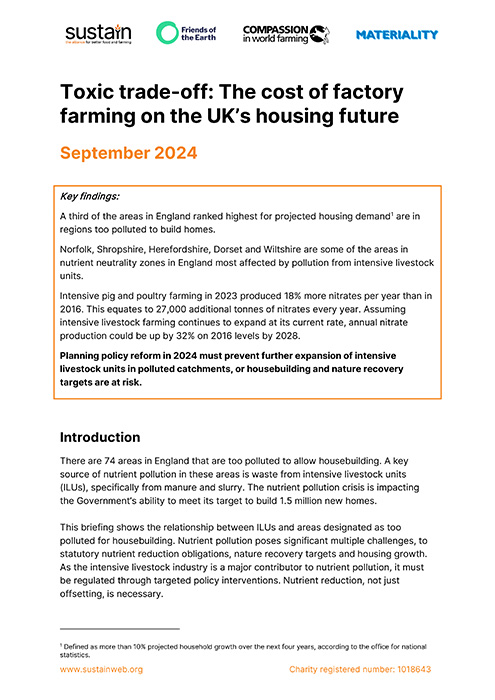
Toxic trade-off: The cost of factory farming on the UK’s housing future 
10pp - 2024 | 631Kb
A third of the English councils with the highest projected housing demand are in areas where it is too polluted to build new homes, with factory farming pollution a major cause. In order for the UK to achieve its housing aims and its nature recovery and climate targets, nutrient pollution from agriculture must be reduced at source.

Toxic trade-off: The cost of factory farming on the UK’s housing future 
10pp - 2024 | 631Kb
New research by Compassion in World Farming, Friends of the Earth and Sustain has found that
Recommendations
In order for the UK to achieve its housing aims and its nature recovery and climate targets, nutrient pollution from agriculture must be reduced at source. To do so, England must transition to a more sustainable food production approach, centred on equity and justice, including:
Food for the Planet: Helping local authorities to tackle the climate and nature emergency through food.
Sustain
The Green House
244-254 Cambridge Heath Road
London E2 9DA
020 3559 6777
sustain@sustainweb.org
Sustain advocates food and agriculture policies and practices that enhance the health and welfare of people and animals, improve the working and living environment, promote equity and enrich society and culture.
© Sustain 2025
Registered charity (no. 1018643)
Data privacy & cookies
Icons by Icons8